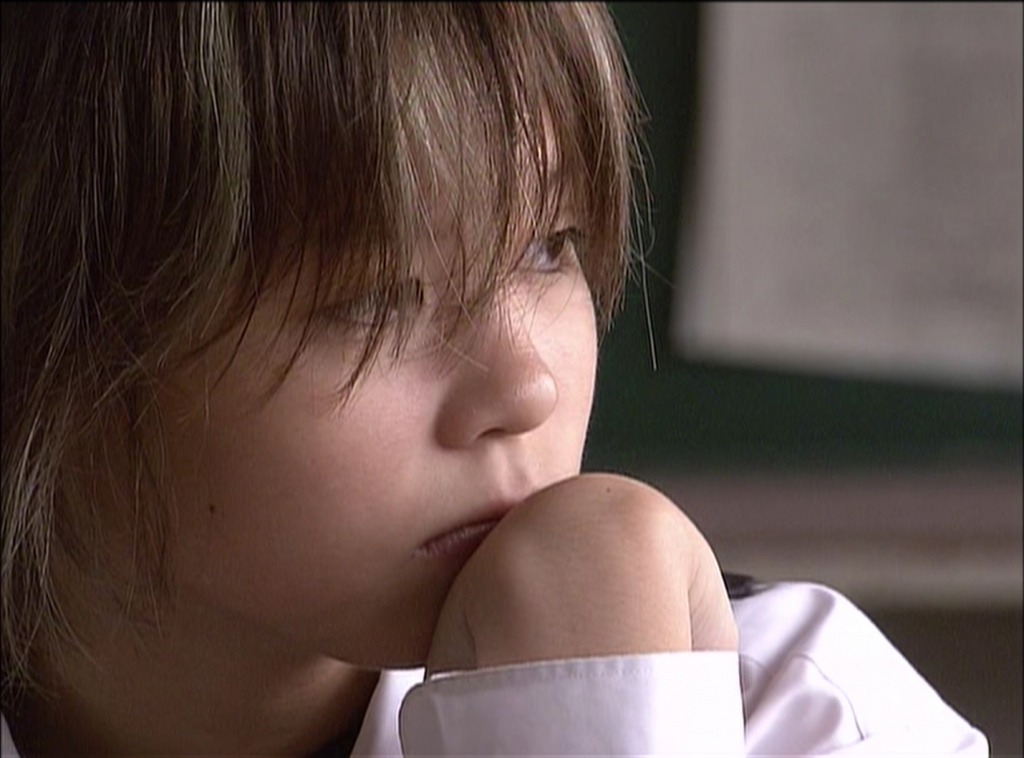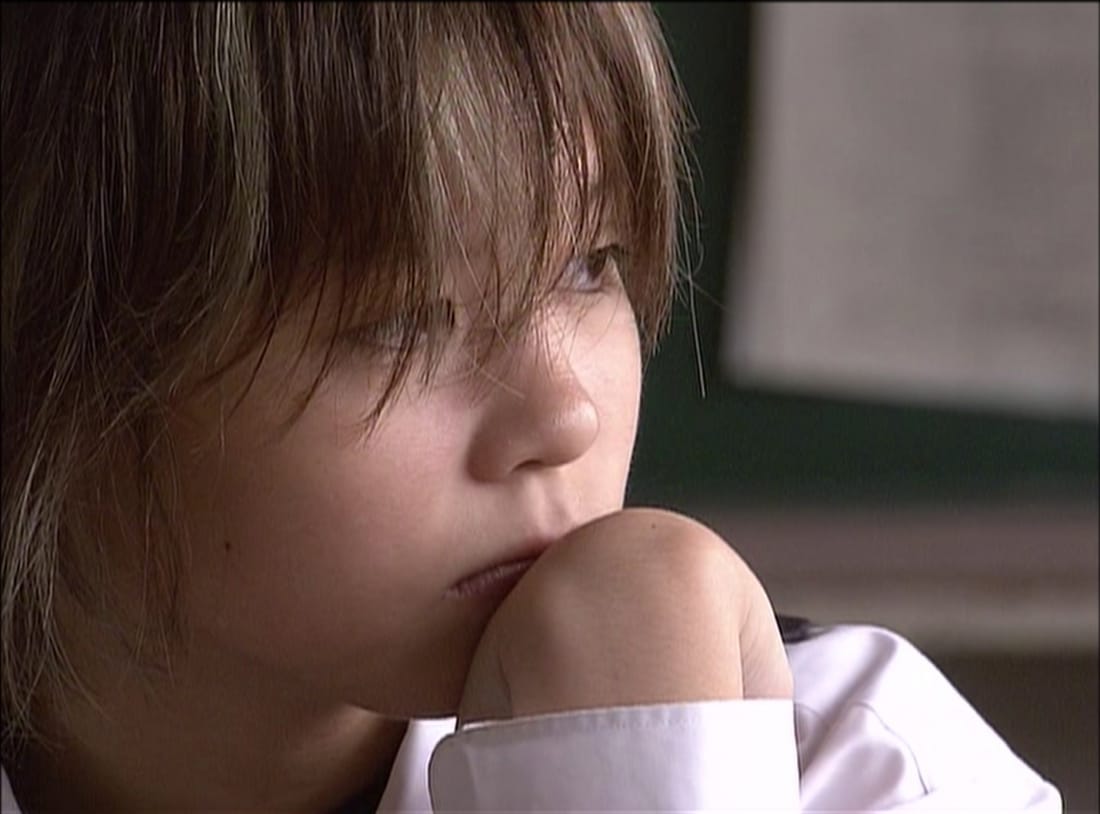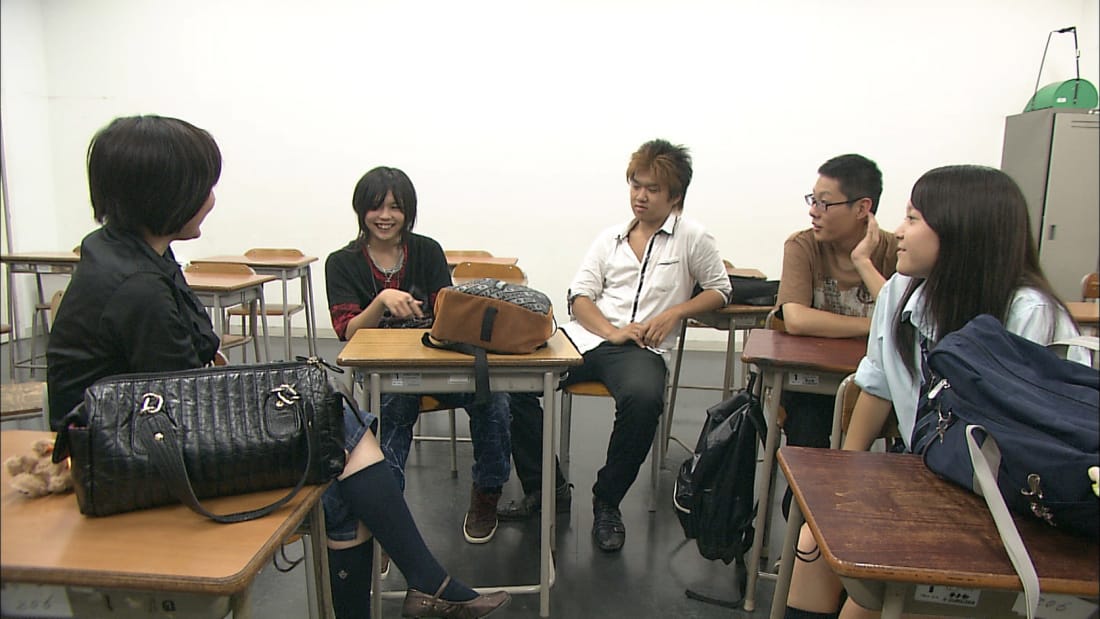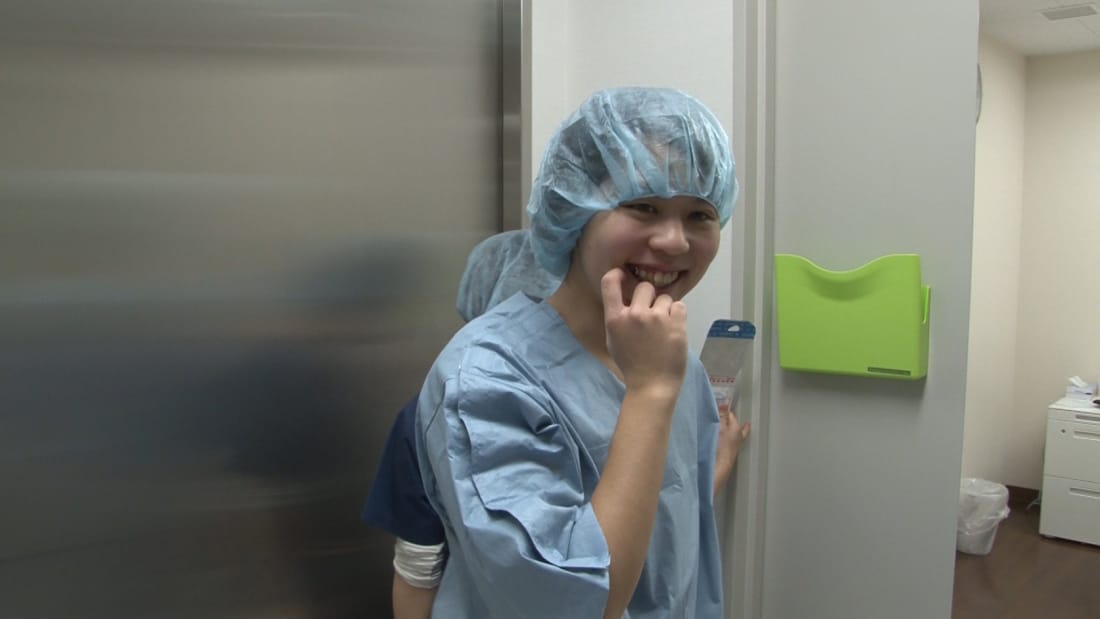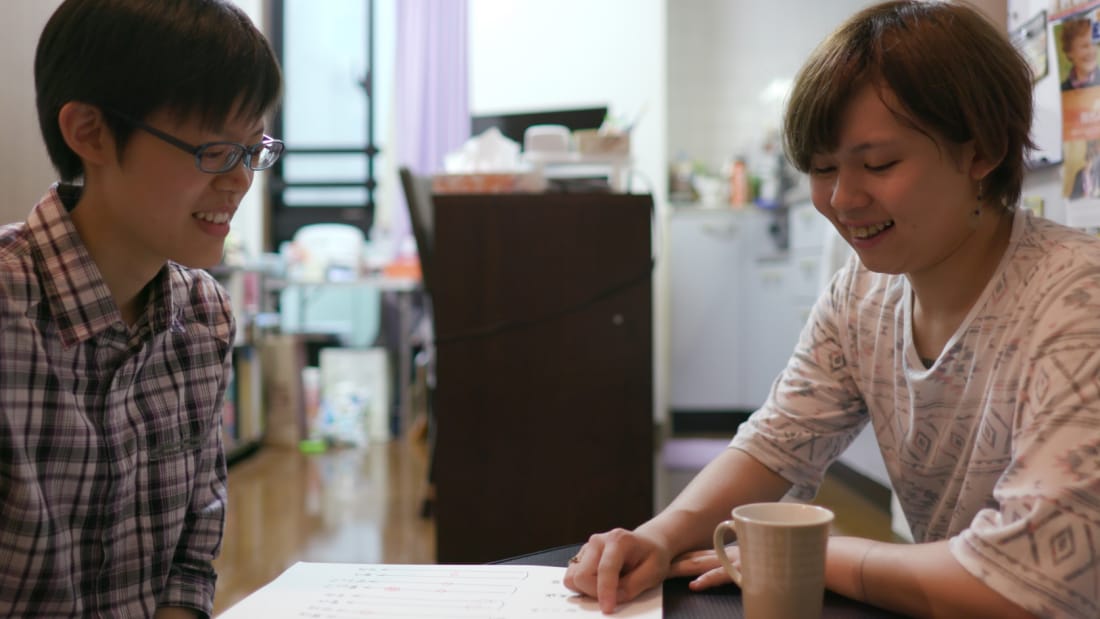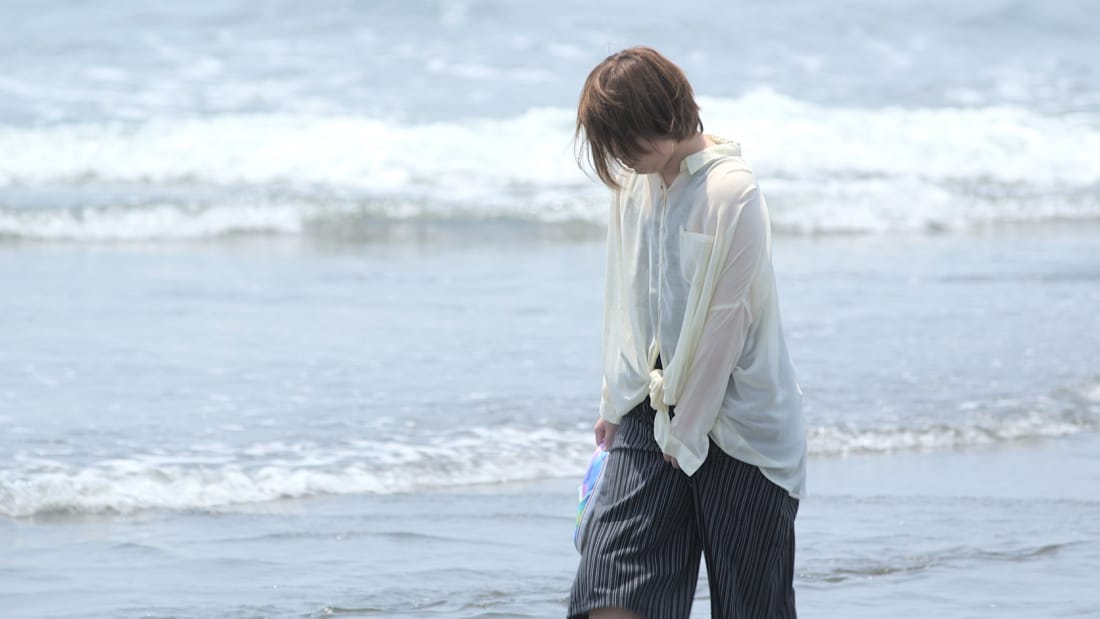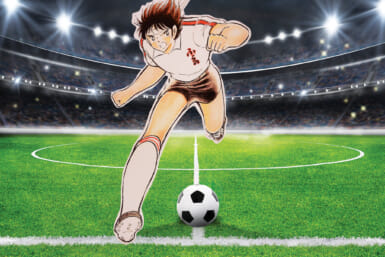Despite being born a female, Takamasa “Sky” Kobayashi entered middle school officially recognized as a boy. This was not only a milestone in Kobayashi’s life, but one for Japan. The recognition of his gender identity – by any Japanese institution – was unprecedented. Though diagnosed with “Gender Identity Disorder” (GID) at 13, he had not undergone any surgical procedures for gender reassignment, as required by the Gender Identity Disorder Special Cases Act. The legislation flagrantly violates the right to privacy of transgender citizens, even requiring them to be sterilized to obtain legal recognition as their gender. This is not to mention ramifications in employment, child rearing, education and more.
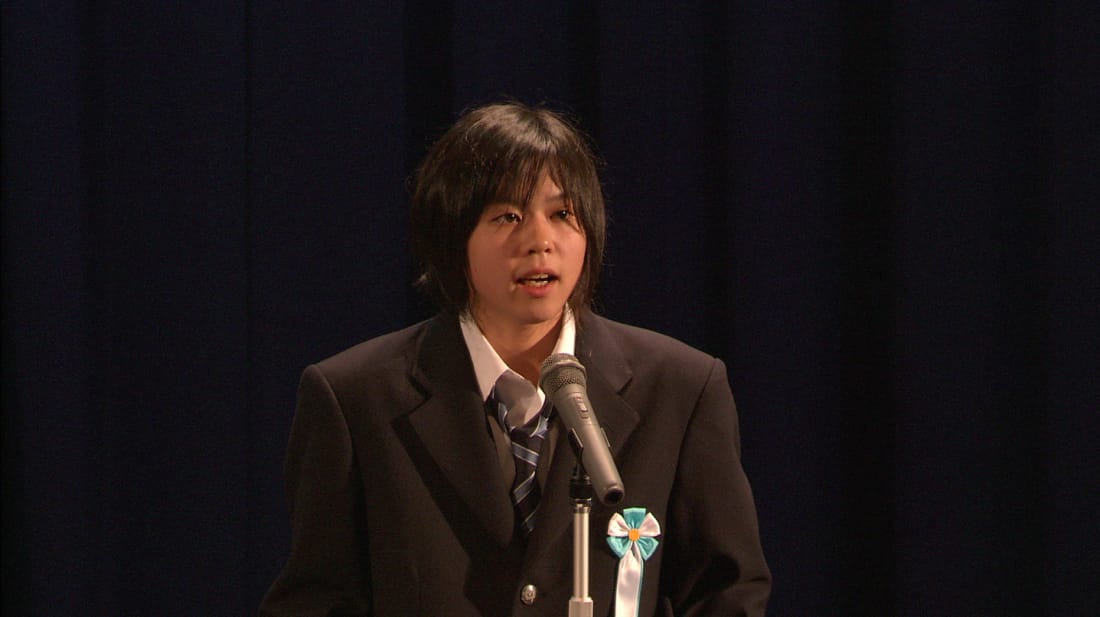
Filmmaker Miyuki Tokoi documented almost a decade of Kobayashi’s journey, from the time he was in school, through surgeries and self-revelations, and through his encounters with Miyuki Yashiro (who received sex reassignment surgery at 78 years old) and Jun Nakajima (who seeks to spread awareness about nonbinary gender identity). This journey would give rise to Tokoi’s film Zero as You Are.
The GID Special Cases Act reflects a wider impulse to medicalize and ostracize gender minorities, including transgender and nonbinary individuals. In conversation with Tokyo Weekender, Tokoi reflected on our tendency to reject minorities of every kind – and how it manifests in school-age peer pressure, in tokenism and Kobayashi’s journey from “negative” to “zero” to “plus.”
In Zero as You Are, you follow Sky Kobayashi through nine years of his life – an especially formative period of time. I assume that Kobayashi had to navigate not only the “classic” adolescent rites of finding your true character and aspirations, but also his gender identity. Based on your interactions with him, do you think his journey in regards to gender affected the way his personality and aspirations developed over time?
Kobayashi-san said that it would be a negative state of affairs until he could revert to his true gender identity, a male. He said, “Everyone else is going from zero to positive, but I’m a negative, so in order to become positive, I have to go back to zero first.” Until he was back to zero, he couldn’t start walking the path of life; until he got to zero, he could not achieve his dream of becoming a voice actor. It took him a while to reach this point, but as he neared zero, he had to ask himself these questions: What does gender mean to me? What is my gender? What is my identity? What is my way of life? By doing so, by confronting these issues more deeply than many others, he learned important things about life.
How did you meet Kobayashi?
It was 10 years ago in 2010. Japan is a society where everybody is expected to be the same. Especially in schools, the peer pressure (douchouatsuryoku, 同調圧力) is so strong. And I learned that kids with gender dysphoria suffered a lot from it in schools in Japan. School life quite often forces students to separate between boys and girls, such as in their uniforms, gym classes, swimming classes. So kids with GID can feel a big pain.
I got to know one girl who had been accepted to be treated as a boy at his junior high school. I think he was one of the very first of several who were accepted by schools to attend as their desired gender. The next time I met him, it was two years later. At the age of 17, he was brave enough to speak out about what he was and how he wanted people around him to treat him. Then I thought, if I follow him to see how he is growing, how he is forming his identity and sexuality, it would make an important story for all of us Japanese.
What inspired you to film the documentary over such a long period of time? What did you find were the pros and cons of this approach?
Initially, I didn’t think it would take nine years. Coming out in front of 700 people in high school – breast removal at 18 – at 20, surgery to remove the uterus and ovaries. And then, finally, he underwent the legal process and officially became a man. I thought the ending of the film would be Kobayashi-san beginning to live his life as a man [in others’ eyes]. However, due to some circumstances on the production side, we had to stop filming at the five-year mark. Two years later, when I decided to start filming again, I found out that Kobayashi-san was having some difficulties living as a man; it was an unexpected development. Male and female aren’t the only genders. I believe that the delay ultimately allowed us to convey a deeper message.
As a documentary filmmaker, especially as you are focusing on one person, how do you find a balance between an intimate, comprehensive telling of your subject’s story and respecting their privacy? In the editing process, what kind of scenes do you feel are most effective for storytelling (e.g. conversations, testimonies, facial expressions)?
From the beginning, Kobayashi-san told me, “Ask me anything you want and I’ll answer.” There are many taboo topics in this field, so I needed somebody who was able to talk openly. That’s why he was the right person to interview in depth.
“I got feedback from Japanese viewers saying, What rude questions”
So I asked him anything I wanted, which is very rare for a Japanese person. There had to be mixed feelings because of this – especially the day before the mastectomy, which we had to film. I decided to boldly ask the questions I had been holding back. I didn’t understand the feeling of gender vacillation, but I really wanted to grasp it so I asked many things. It was the day before the surgery, so Kobayashi-san must have been a little anxious. Hearing his thoughts at this time made me realize from the depths of my heart, Kobayashi-san is living with these kinds of feelings. My questions are included in the film, and I got feedback from Japanese viewers saying, What rude questions, or You shouldn’t ask such questions. But I think it’s an important scene for illustrating Kobayashi-san’s thinking.
In some of the promotional material for the film, it is mentioned that Kobayashi’s story illuminates some issues of contemporary Japanese society, like the tendency to reject difference. For Kobayashi in particular, who started explicitly expressing his gender identity at a young age, how did his identity clash (or harmonize) with this school environment? Grade school in Japan can be a harsh place.
I feel that in Japanese schools, we are all expected to think and act the same way. Even among children, there are those who are bullied for being different. In fact, in elementary and middle school, I had a hard time trying to act like the students around me.
Kobayashi-san had a good time in school. To me, it’s not that he was blessed with a good environment, but that he was able to change the people around him by directly communicating to them about his life. I resonated with his way of life, setting off a chain of events in a good way. That’s why I felt compelled to share his story with so many people.
I didn’t realize it at the time, but looking back, I think the reason I made this film was to portray Kobayashi-san’s life in a way that children like myself who were having a hard time could feel even a little bit better, and express themselves.
Aside from not identifying with your own body or grappling for your identity, what do you think are some of the struggles of transgender people and nonbinary people in Japan, specifically?
There are transphobic people everywhere in the world. But I would say, in Japan, the majority of people are not actively against them, but they are unaware of the issues surrounding transgender identity. A lot of people think that there are not transgender people around them, which is not actually true. So people don’t know how to treat them, how to become close to them.
Especially in Japan, not only in schools, we tend to reject people who are different, so people with gender dysphoria can’t come out easily because they fear being rejected. So the issues have been kept unseen and unsolved.
Do you feel that contemporary Japanese society is growing more understanding and accepting of the fluidity of gender and gender expression? What still needs to be done?
In Japan, measures have been taken in the last five years or so regarding gender minorities, and people’s recognition of these issues has progressed greatly. The word diversity (tayousei, 多様性) is coming to be used more, with various ways of life being more readily recognized. However, sometimes I feel that diversity or tayousei becomes the topic and it ends there, becomes just a word that people say, or that people still don’t think about diversity of their own accord. And I feel that more and more people in Japanese society are feeling constrained when they talk about these issues. I think it’s because people don’t usually consider the experiences of minorities their business. I’m a visual artist, and film is a medium that best simulates lived experiences. It has the power to transform knowledge into actual feeling.
If we think of [gender diversity] as our business and ask ourselves about our own identities, people will come to think, This is a better society to live in. This is a challenge for me. As Kobayashi-san navigates his life, I would like viewers to get a sense of that – that if we think about “diversity” and ourselves, gender and ourselves, society will improve.
A screening of Zero as You Are with English subtitles will take place at Uplink Shibuya on August 1. The screening will be followed by a talk with Tokoi and documentary filmmaker Ian Thomas Ash. A second screening will take place on August 4, followed by a bilingual talk with Tokoi and Kobayashi’s mother. For more information about Zero as You Are, go here.
English screenings will take place every Tuesday and Saturday at Uplink Shibuya up to August 15.

